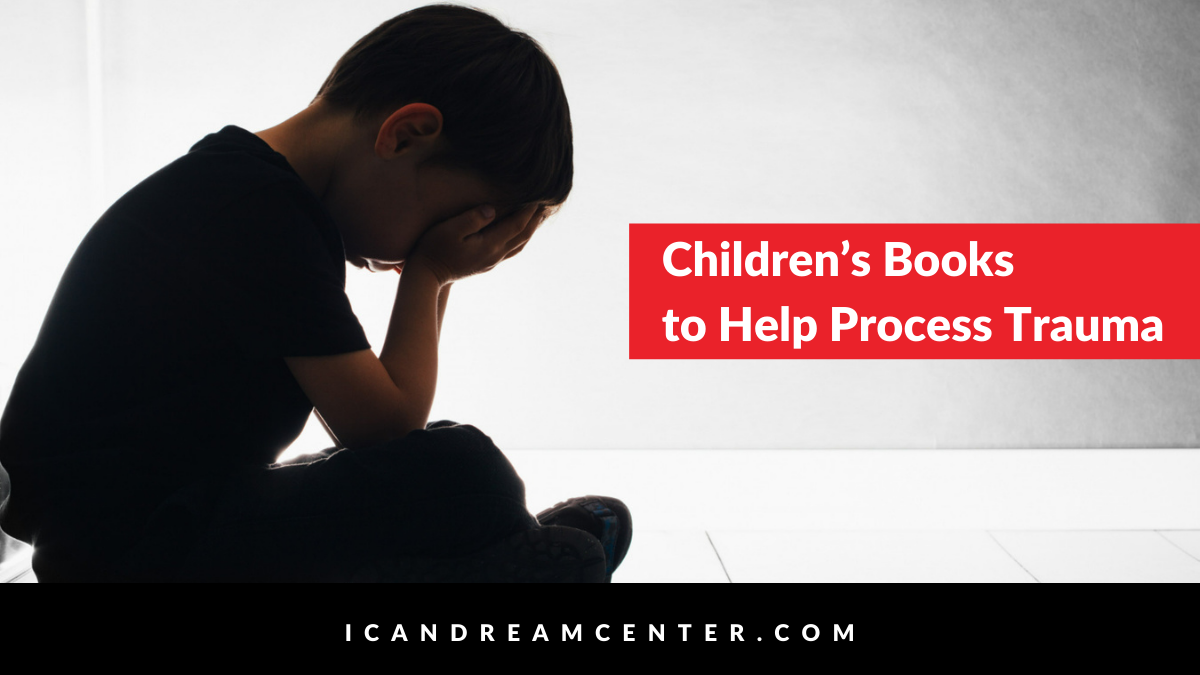
Children’s Books to Help Process Trauma
ACES, or Adverse Childhood Experiences, come in many forms, from physical and mental abuse to neglect and household dysfunction. In 1998, CDC-Kaiser Permanente published a groundbreaking study that investigated the impact of ACEs on physical and mental health problems in over 17,000 adults.
Now that we understand how toxic stress affects the minds and bodies of children, we can interrupt these changes by providing safe, stable, nurturing environments, while helping children build social-emotional skills and resilience.
Using children’s books to help talk about trauma can help children see themselves in books and to understand that they are not alone. Books can also provide an opening for conversations with adults about what they have gone through. From there, adults can help the child increase their resilience.
Here are the titles and descriptions of several books that can help young children who have experienced ACES.
Speranza’s Sweater by Marcy Pusey
Kids deserve a safe place to live and grow and learn. For some kids, this means living with foster or adoptive parents. Speranza’s Sweater chronicles one child’s experience through the foster and adoptive system.
Speranza wears her sweater everywhere, hanging onto the last memories of her birth home, until it’s threadbare. Like her unraveled sweater, Speranza must weave together a new story, bringing threads from her past and strands from her present, into a future of love, family, and the true meaning of home.
The Memory Book About Grief by Joanna Rowland
“I’m scared I’ll forget you…”
From the perspective of a young child, Joanna Rowland artfully describes what it is like to remember and grieve a loved one who has died. The child in the story creates a memory box to keep mementos and written memories of the loved one, to help in the grieving process. Heartfelt and comforting, The Memory Boxwill help children and adults talk about this very difficult topic together.
Maybe Days: A Book for Children in Foster Care by Jennifer Wilgocki
For many children in foster care, the answer to many questions is often maybe. Maybe Days is a straightforward look at the issues of foster care, the questions that children ask, and the feelings that they confront. A primer for children going into foster care, the book also explains in children’s terms the responsibilities of everyone involved – parents, social workers, lawyers and judges. As for the children themselves, their job is to be a kid – and there’s no maybe about that.
Healing Days: A Guide for Kids Who Have Experienced Trauma by Susan Farber Strauss
Healing Days is a book designed to be used in therapy for young children and functions as an excellent resource for those who have experienced physical or sexual abuse, or other trauma. Readers will follow four children as they learn ways to cope with their own trauma. Sensitive, empowering, and beautifully illustrated, the book models therapeutic coping responses and provides children with tools they may use to deal with their own trauma.
Please Tell: A Child’s Story About Sexual Abuse (Early Steps) by Jessie
Written and illustrated by a girl who was sexually molested by a family member, this book reaches out to other children by carrying Jessie’s message “It’s o.k. to tell; help can come when you tell.”
The Day My Daddy Lost His Temper: Empowering Kids That Have Witnessed Domestic Violence (The Empowering Kids Series) by Dr. Carol Santana McCleary PsyD
The Empowering Kids Series is a collection of empathically reflective stories told from the perspective of young children. These books are meant to be used by parents and mental health providers to facilitate the child’s verbalization of their feelings and experiences, thereby advancing the healing process and are aimed at validating the readers’ experiences and feelings, thereby reducing feelings of shame and isolation.
Once a Terrible Thing Happened by Margaret M Holmes
After Sherman sees something terrible happen, he becomes anxious and then angry, but when a counselor helps him talk about these emotions he feels better.
Once I Was Very Very Scared by Chandra Ghosh Ippen
A little squirrel announces that he was once very, very, scared and finds out that he is not alone. Lots of little animals went through scary experiences, but they react in different ways. Turtle hides and gets a tummy ache, monkey clings, dog barks, and elephant doesn’t like to talk about it. They need help, and they get help from grown-ups who help them feel safe and learn ways to cope with difficult feelings. This story was written to help children and grown-ups understand how stress can affect children and ways to help them.
Adverse Childhood Experiences can have a lifelong impact on a child’s health. If you know of a child who needs help dealing with trauma, contact iCan Dream Center for resources and assistance.
